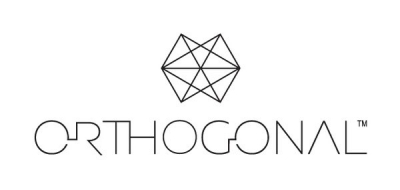MedTech Experts Discuss Their Best Practices for Accelerating Medical Device Software Development
To paraphrase a famous tech industry quote, “In the future, all MedTech companies will become software companies.” Digital Medtech (powered by software, data, algorithms, the cloud, smartphones and ubiquitous connectivity) are delivering an ever increasing share of the new value and innovation created by medical devices.
This creates tremendous opportunities for the firms that are able to move at a velocity that’s closer Internet-speed than the traditional pace of regulated medical devices. The firms that learn to find a middle group between moving slow and breaking nothing and moving fast and breaking things have the greatest potential to create tremendous revenue streams at high margins by continually raising expectations for demonstrable healthcare outcome improvements and healthcare cost containment.
As a result, a whole range of players are now fiercely competing with investments and talent in what was once the sizable, but fairly cloistered world of medical device manufacturing:
Traditional medical device manufacturers are fast creating connected devices and new digital business models find themselves competing with:
Giants in the technology industry (including cloud-based Internet giants and consumer electronics innovators) looking to further expand their (often $1T+) fast growing market valuations by capturing a large share of the revenue in healthcare and life sciences the same ways they have in virtually every other industry
Pharmaceutical manufacturer now developing pipelines of digital therapeutics
An entire range of traditional brick and mortar healthcare providers and newer virtual and hybrid healthcare providers providing a range of telemedicine services and chronic disease management and wellness offerings
Startups (often well funded) with innovative ideas for Software as a Medical Device (SaMD), fewer constraints that want to compete with or exit with a sale to any of the above firms
But while the potential gains to the winners and patients are huge, and the risks to the losers are just as large, virtually everyone working in connected medical devices, DTx and SaMD are finding that it’s still very difficult to effectively fuse the velocity and agility of the web world with the safety, efficacy and constraints of regulated MedTech and the healthcare ecosystem it operates within.
Join us and cram 10+ hours worth of high-value, timely learning into a 90 minute session.
This event will feature a mix of industry leaders and pioneers sharing first-hand lessons learned from their pioneering case studies accelerating the development of medical device software at the dawn of the age of digital health. During this webinar, they will share best practices and worst practices learned through their leading edge efforts. They will discuss a variety of tech industry approaches to leverage such as fast feedback loops (e.g., agile and Lean Startup), design thinking, and non-traditional leadership approaches, and how to best fuse those approaches with the constraints and decades of experience already known in regulated MedTech.
Presented by

Bernhard Kappe,
CEO and Founder, Orthogonal
Bernhard Kappe is the Founder and CEO of Orthogonal. For the last decade, Bernhard has provided thought leadership and innovation in the fields of Software as a Medical Device (SaMD), Digital Therapeutics (DTx) and connected medical devices. As a leader in the Chicago-tech industry, Bernhard has a passion for launching successful medical device software that makes a difference for providers and patients, as well as helping companies deliver more from their innovation pipelines. He’s the author of the ebook Agile in FDA Regulated Environments and co-author of the AAMI consensus report on cloud computing for medical devices. Bernhard is founder of the Chicago Product Management Association (ChiPMA) and the Chicago Lean Startup Challenge, the top startup competition based on lean startup principles. Bernhard earned a Bachelor’s and Masters in Mathematics from the University of Pennsylvania, and a Bachelor’s of Science and Economics from the Wharton School of Business.

Randy Horton,
VP of Solutions and Partnerships, Orthogonal
Randy Horton is VP of Solutions and Partnerships at Orthogonal, where he works with pharmaceutical, diagnostics, and medical device companies to help them accelerate the development and rapid improvement of Software as a Medical Device (SaMD), digital therapeutics (DTx) and connected medical devices. Randy has spent much of his career guiding healthcare and life sciences organizations in applying the latest in strategic thinking, business models, and technology trends to improve healthcare outcomes and bend the healthcare cost curve.
His passion for connecting impactful people and ideas inspired his unofficial Orthogonal title of Chief Extrovert Officer (CXTRO). Together with Pat Baird, Horton co-chaired AAMI CR510, the industry’s first ever guidance on applying cloud computing to regulated medical devices, and now co-chairs the successor TIR effort. Horton has a BA and a Master’s degree from the University of Michigan, and was in the first graduating class from School of Information.






